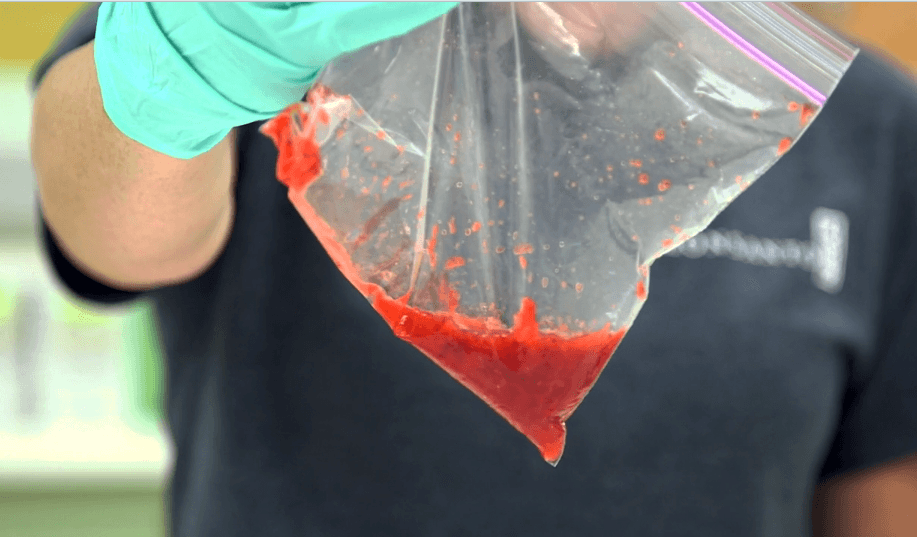Stories | April 5, 2017 | Read Time: 3 minutes
Keep Kids Curious with Science
Imagine information is like a coin, and your brain is a coin purse. As you go around asking questions, surfing the web, watching YouTube videos – whatever it may be – you are collecting coins along the way and storing them in your coin purse.
When the time is right – this may be during a test, a school project, or maybe even at recess – DING! You pull out a coin and cash it in the form of a new idea, answer to a question, or solution to a problem. The more “coins” in your purse, the richer you are in knowledge, and the more information you can pull from the additional ideas you generate.
Let’s add some knowledge to your brain by doing an experiment using common household items.


Extract DNA from a Strawberry: Step-by-Step Instructions
Want to see it in action? Watch the video at the top of the page. Parents – check out this handy resource to help your little scientist.
From this experiment you may ask yourself, “Why did they use that type of soap? Why not laundry soap?” So try it. Change the variables and ask more questions. As you gain more and more coins of knowledge, you will find yourself asking more and better questions.
Science and engineering is often the combination of unlikely things to give a better solution. Sometimes the solutions come from noticing a better way to do things, and other times we may look at what nature does well.
As you gain more knowledge, you may find that you can ask different questions. For example, if I know that a certain bacteria can shuttle its DNA to other living things because that’s what it does in nature, then I might ask, “Can I tell that bacteria to deliver specific instructions to another living thing to allow it to make proteins that will protect itself from insects?” Scientists and engineers ask themselves questions like that every day.
There is a big opportunity for students interested in science, technology, engineering, and math (STEM). As technology becomes more sophisticated and machines become more efficient at mundane tasks, the world will need creative innovators who are trained in the STEM fields. Students who learn to think outside the box to generate solutions will be able to progress humankind forward and become the leaders of tomorrow.
Science is open to all – it knows no age or gender. If you have a good idea, build it. If you don’t know how to build it, make friends with people who can.
In the 21st century, having skills like problem solving, working with others, moving quickly, and being flexible to change will set you up for success.
Interrogate the world around you. Ask questions to learn as much as you can in as many subjects as you can. Why do plants face the sun? Why are leaves shaped the way they are? Can I come up with something better? Can I combine unlikely systems to deliver a better solution?
Stay curious, keep adding coins, and always chase the next question.
Follow Valerie on Twitter @vbayes









